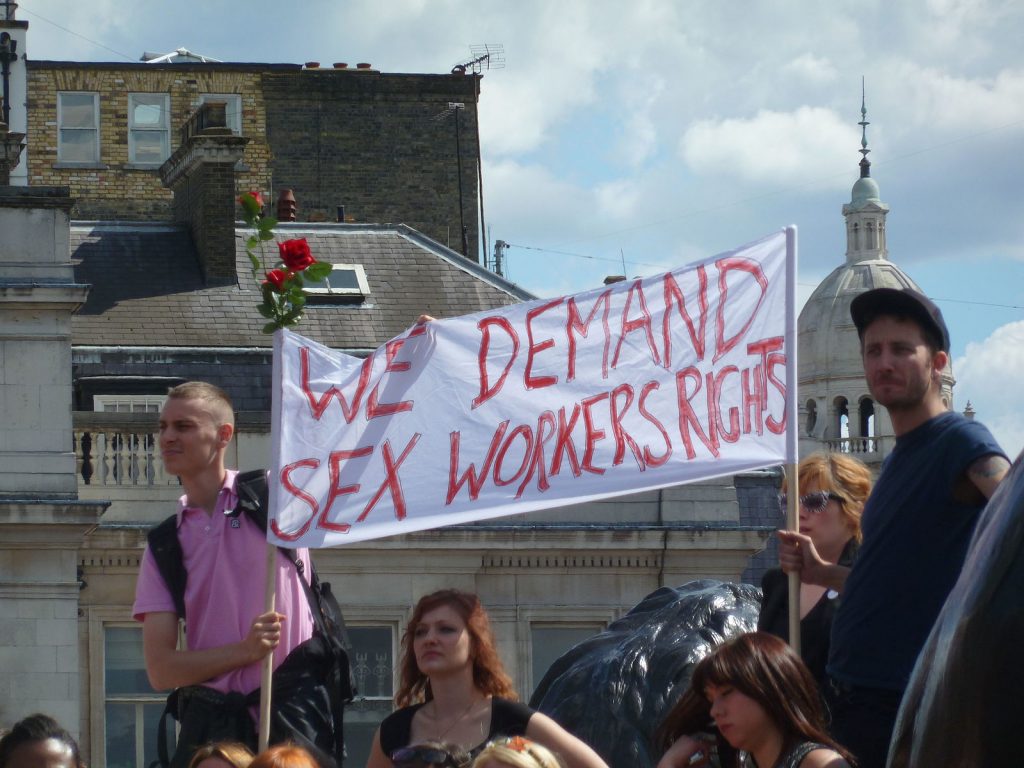A Tory politician has called a report by his fellow Conservative party members, which calls for sex workers’ clients to be prosecuted, “dangerous” and “flawed”.
The Conservative Party Human Rights Commission on Thursday (25 July) released the report calling for prostitution to be decriminalised but for buying sex to be made a criminal offence.
This approach, known as the Nordic Model after it was first introduced in Sweden, claims to punish the buyers of sex work while decriminalising sex workers themselves.
But Conservative London Assembly Member (AM) Andrew Boff, as well as a number of sex worker-led groups, argues that evidence shows that all this would do is put sex workers at greater risk of attack.
Boff, who is strongly in favour of decriminalising sex work, also stressed that the Commission is not a formal body of the Tory party but has merely named itself after the Conservative Party.
The Conservative Human Rights Commission has decided to focus on morality, not human rights. Time for a name change? #KeepSexWorkersSafe
— Andrew Boff (@AndrewBoff) July 25, 2019
The AM, who sits on the National Police Chief Council’s Prostitution Working Group, told RightsInfo: “All [the Nordic Model] does, by criminalising the buyers of sex, is make sex workers carry out their business in a really dangerous environment”.
He cited statistics for sex worker protection charity Ugly Mugs that show reports of violent attacks on sex workers have increased by 50 percent in Ireland after it adopted the model in 2015. There were around 900 in the year preceding the change and more than 1,400 reports the year after.
The Commission’s report cites statistics showing that, since the Nordic model was introduced in Norway and Sweden, demand for buying sex has fallen.
“But that is only because it has been made illegal, so transactions take place in secrecy,” Boff explained. “Now that it is illegal, they take place out of the view of people who keep the statistics.”
Their logic is we should ban sex work because human trafficking occurs.
They should therefore be banning nail bars, car washes and Chinese restaurants because trafficking is about making people work against their consent.
Andrew Boff, Conservative Greater London Authority Member
Boff added that the report, which he said conflates human trafficking and sex work and is “couched in terms of protecting women”, has “less to do with human rights and more to do with morality”.
“Their logic is we should ban sex work because human trafficking occurs. They should therefore be banning nail bars, car washes and Chinese restaurants because trafficking is about making people work against their consent. Sex work is only one aspect of what people might do.”
He added: “There is no mention of the problems that trans sex workers face and barely a mention of male sex workers”.
The Commission was set up in 2005 by former Shadow Foreign Secretary Gary Streeter MP. Its previous reports have mostly focussed on human rights issues outside the UK. Conservative MP Fiona Bruce authored its most recent report on sex work.
What Does The Report Recommend?

Image Credit: Pixabay.
The 54-page report, entitled “The Limits Of Consent”, argues that decriminalising selling sex would enable prostitutes to leave the industry without the stigma of being involved in an illegal trade as well as reducing exploitation and trafficking.
Its findings are based on a review of existing research on the impact of sex work laws in the UK as well as evidence on alternative approaches taken in other countries, such as Sweden, Norway, New Zealand and Canada. It is also based on three “oral evidence sessions,” one of which featured evidence from four people with “lived experience of prostitution”.
Also among its recommendations is to publish police guidance to make enforcement of the law more consistent across England and Wales. The report takes the view that “the entire system of prostitution is built upon the exchange of money for sexual consent”.
“Without the money, there would be no consent,” it adds. It concludes “that it is therefore accurate to characterise our system as allowing for the purchase of sexual consent, and believes that this undermines the principle of sexual consent itself”.
‘Callous Arrogance’

Image Credit: Ms Mornington / Flickr.
Among those who gave evidence to the Commission was campaign group the English Collective of Prostitutes (ECP).
Laura Watson, an ECP spokesperson, said her group told the Commission that the rise in prostitution is attributable to “the intolerable poverty faced by women as a result of Conservative austerity cuts”.
She told RightsInfo: “It is typical of the callous arrogance of this Government that the [Commission] response is to condemn as degrading, not the poverty or their policies that have promoted it, but the way that some women have found to earn our living.
“To then recommend the increased criminalisation of prostitution in the form of criminalising clients, when the evidence shows that this would put sex workers at greater risk of attack, is irresponsible and dangerous.”
As reported by RightsInfo in May 2019, the Royal College of Nursing (RCN) voted in favour of lobbying the Government to fully decriminalise sex work.
Louise Cahill, a sexual health specialist who spearheaded the RCN’s move, said at the time: “Evidence from France, Ireland and other countries which have the Nordic Model, has shown that criminalising clients gives them more power over workers not less.
“This means that workers are forced into riskier situations.”
Want to learn more?
- Learn more about the Royal College of Nursing’s position on prostitution.
- Read about calls for sex worker rights.
- Take a look at groups calling for decriminalisation of sex work.







